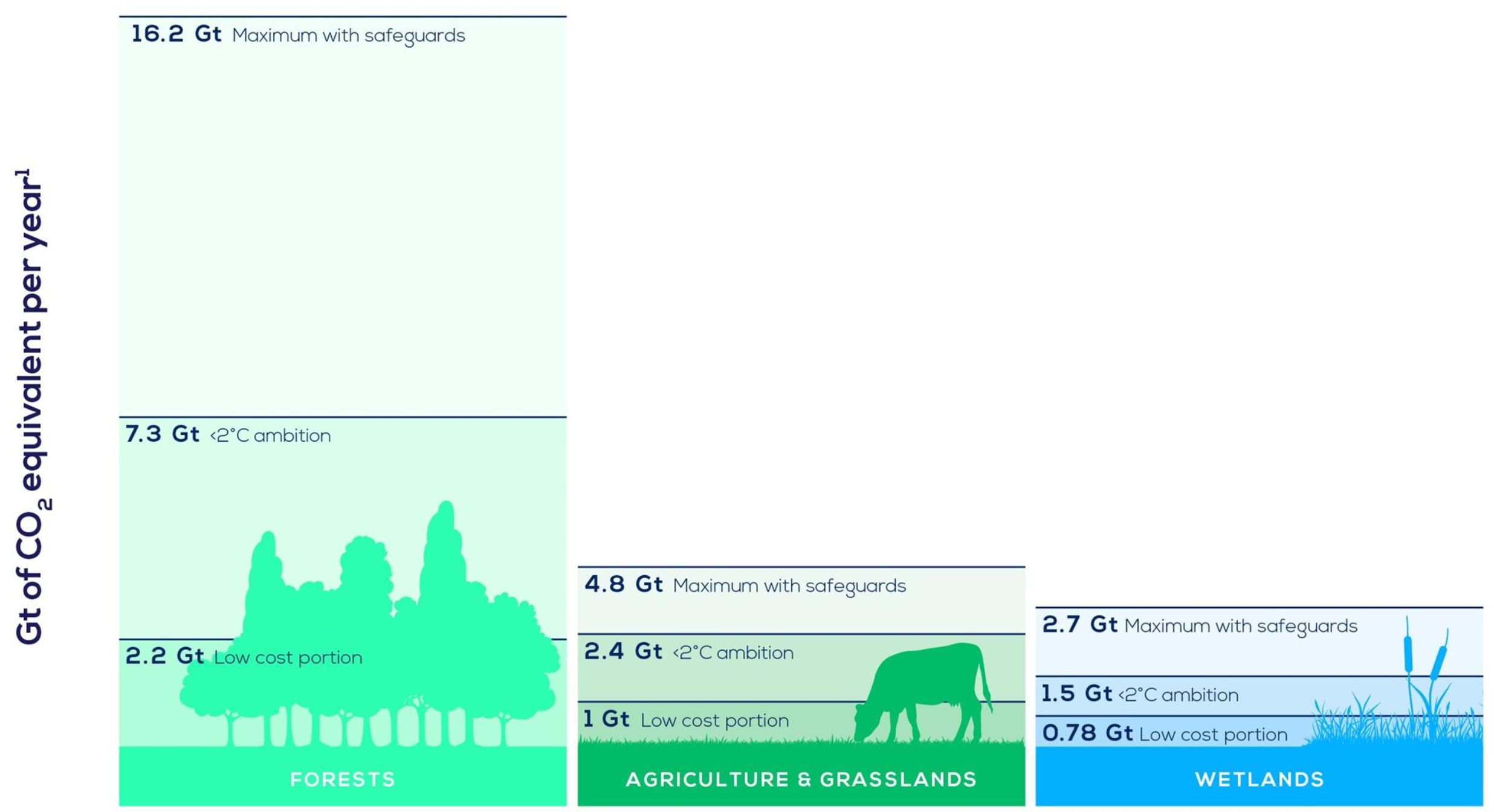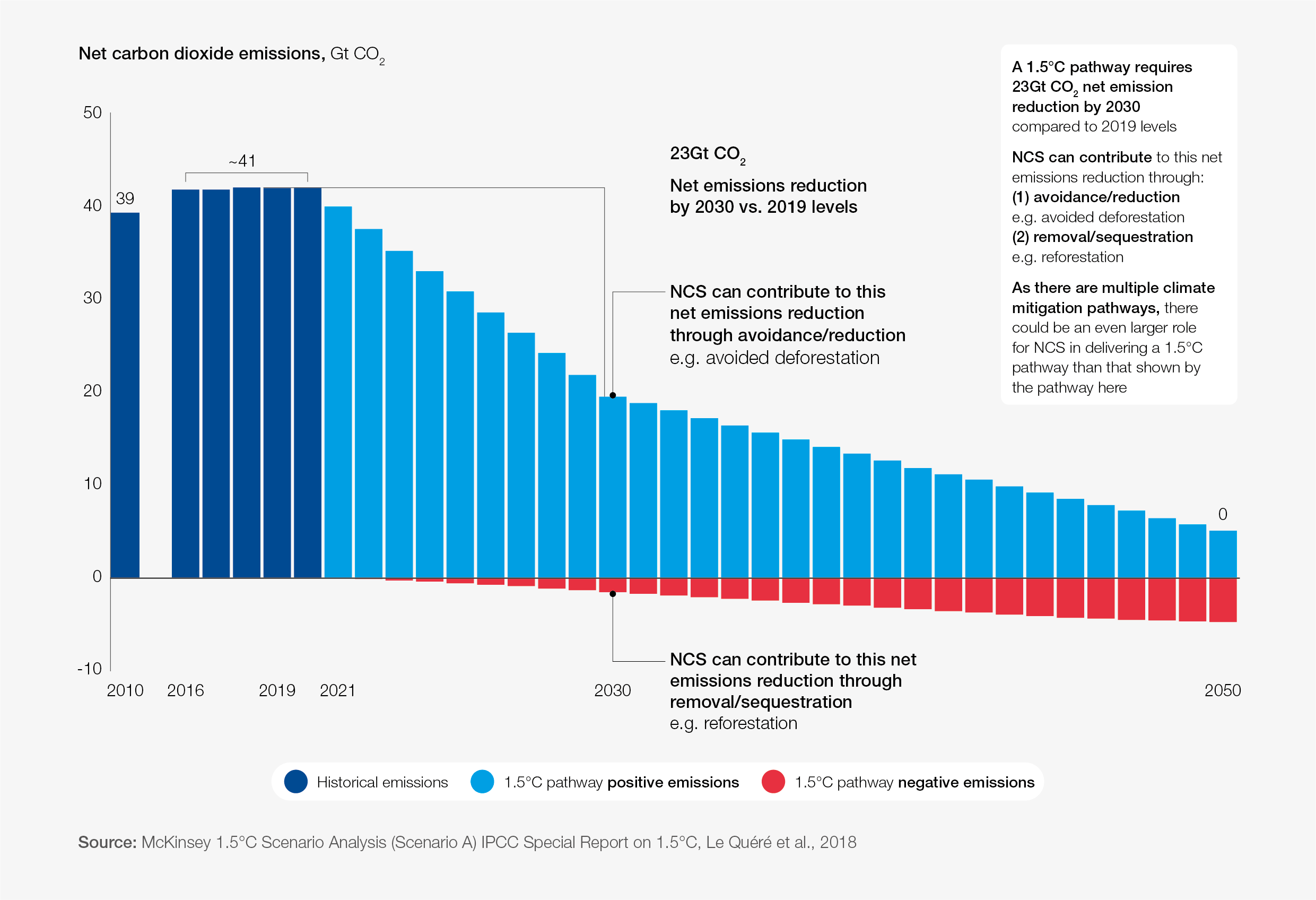Net-zero: the risks and benefits for companies pledging to save the climate

An effective net-zero strategy is vital for a sustainable future. Image: https://unsplash.com/photos/Rfflri94rs8 Matthew Smith
Martin Reeves
Chairman, BCG Henderson Institute, and Senior Partner and Managing Director, Boston Consulting GroupJulia Dhar
Partner and Managing Director and Fellow to BCG Henderson Institute, Boston Consulting Group (BCG)Annelies O’Dea
Project Leader and Ambassador to BCG Henderson Institute, Boston Consulting Group (BCG)
Get involved with our crowdsourced digital platform to deliver impact at scale
Stay up to date:
Future of the Environment
Listen to the article
- Corporate net-zero pledges are gaining momentum, but limitations in net-zero's design and implementation reduce impact and jeopardize progress.
- There are 15 limitations which are often manifest in many well intentioned net-zero initiatives.
- Governments and businesses have the opportunity to leverage momentum while accelerating and strengthening net-zero commitments and progress towards climate sustainability.
A critical mass of the world's largest companies and countries have now made net-zero pledges, creating a snowball effect that will encourage others to join. As net-zero rapidly becomes the standard for government and corporate commitments, it’s appropriate to stop and ask: is net zero a sufficient tool to address climate change?
What does net-zero offer
Ostensibly, net-zero offers a goal of climate stability and an accounting system to measure progress towards that goal. It is also a platform that an expanding set of players can commit to over time.
Net-zero offers the abatement of climate risk for shareholders without abrupt disruption to near-term returns, and reputational benefits for companies that serve customers or businesses that are climate-conscious.
But a deeper review reveals significant limitations to the approach, which, if unaddressed, could easily misrepresent and undermine progress toward the ultimate goal of environmental sustainability. All of these can already be observed in practice.
15 limitations of net-zero
Definitional consistency/completeness: Multiple accounting standards and varied implementations of net-zero accounting create room for manipulation, misrepresenting the pace of progress. For example, pledges that target only a subset of activities can make heavy-emitting industries appear to be net-zero and delay more transformative change.
Verifiability: The verification of reported reductions and the execution of offset pledges represent an increasingly complex challenge, opening the scheme to manipulation.
Double counting: A single carbon offset can sit simultaneously on multiple entities’ balance sheets, inflating perceived impact.
Delayed impact: Nature-based offsets, such as afforestation schemes, take time to realise their impact. The short-term imbalances between when the offset is credited and when it yields its full benefit can lead to further climate deterioration.
Postponement of decarbonization: Carbon offsets create an “easy solution” that may distract or delay companies from the hard but more meaningful and permanent work of reducing their own carbon emissions.
Permanence: Carbon offsets must be maintained through proper stewardship long after they are "bought" to sustain impact. For example, an acre of forest sold this year as a carbon offset may be destroyed next year due to neglect, fire, or even willful action on the part of the seller.
Non-additivity: If buying a carbon offset leads to a reduction of greenhouse gas emissions that would have happened independently, then the offset is non-additive.
Leakage: Attempts to reduce emissions in one location may shift emissions to another where they are uncontrolled or uncounted. For example, a carbon offset programme that safeguards an area of rainforest in the Amazon from clear-cutting may result in the clear-cutting of an area of rainforest in the Congo Basin.
Economic viability (inflation of offset prices): Pledges made today for carbon neutrality at a future date are effectively commitments to buy offsets at an unspecified price. However, the price of carbon offsets will likely rise in the future due to constrained supply and increased demand. This may make planned offsets economically unrealistic and result in pledges not being fulfilled.
Voluntarism: Achieving a net-zero planet will require 100% of companies and countries to become net-zero. However, the elective basis of the net-zero will inevitably lead to partial participation. The biggest emitters are likely to have the most intractable challenges and the least incentive to commit.
Moral hazard: Most carbon offset solutions available today involve paying someone to not take an action (e.g. not to log a forest) which creates a financial incentive for offsetting entities to project an action they had previously not intended to take and be paid for not taking it.
Inequity in economic development: Net-zero may inadvertently restrain economic development in poorer nations by diverting a country's resources for the provision of offsets beyond its borders, rather than economic development. This in turn may create political limits to scaling the net-zero mechanism.
Over-simplification of sustainability as carbon neutrality: Many pledges today are solely focused on the reduction of carbon dioxide, despite methane and nitrous oxide having 30 and 300 times the heat-trapping effect of carbon dioxide, respectively.
Over-simplification of sustainability as decarbonization: The growing focus on greenhouse gas (GHG) reduction goals could be self-defeating if other mechanisms of environmental degradation continue unchecked. For example, the depletion of species and destruction of natural habitats can reduce the natural buffering capacity of the planet, undermining climate sustainability.
A goal without a path: Net-zero provides a goal, but not a path to achieve it. The complex, unprecedented, inter-dependent and transformative change required to reach net-zero planetary emissions may not be achievable without a coordinated transition plan and the research, investments, policies and regulations to support it.
What is the World Economic Forum doing on natural climate solutions?
Elements of a better path forward
Given these limitations, how do we harness the momentum created by net-zero while evolving a more robust set of solutions? Some elements of a better path forward could include the following. Some limitations of net-zero can be addressed through improved definitions and how these are applied in practice.
Establish consistent definitions/standards: Net-zero emission targets must account for all GHGs, covering the full scope of activities.
Distinguish carbon offsets from emission reduction in reporting: Carbon offsets cannot be allowed to substitute for or postpone addressing emissions. Companies should report separately their emissions reductions and their offsets.
Create robust mechanisms of verification: Audited inventories of carbon offset resources can support a marketplace for carbon offsets that can be verified and monitored over time.
Beyond net-zero
We must pursue a more multi-dimensional view of sustainability and put in place the financial, operational, technological, behavioural, and cultural support to enable the transformative actions necessary.
Take a multidimensional view of sustainability: Consider sustainability beyond the single dimension of carbon emissions to include all relevant factors, including other GHG emissions, species diversity, air and water quality, and nature preservation.
Develop a behavioural strategy: Understand the behavioural economics of decarbonization and put in place the right nudges, sticks, and kicks to encourage the desired human behaviours.
Ensure sustainable economics for decarbonization and offsets. Expect carbon economics to shift over time as demand for offsets and sustainable inputs create new scarcities and price inflation and bake this into pledges and projections.
Develop transition paths: Identify the major economic, technological, and societal shifts we must make collectively to provide the foundation for individual agents to meet their net-zero targets. Coordinate and sequence these shifts to enable large scale change.
Accelerate innovation: Accelerate the pace of discovery, scaling, and adoption of innovative solutions through increased funding, private & public partnership, and international cooperation. Decarbonization requires better and more cost-effective solutions than we have now and is therefore as much an innovation as an execution challenge.
This article summarizes a longer report from the BCG Henderson Institute, available here.
Don't miss any update on this topic
Create a free account and access your personalized content collection with our latest publications and analyses.
License and Republishing
World Economic Forum articles may be republished in accordance with the Creative Commons Attribution-NonCommercial-NoDerivatives 4.0 International Public License, and in accordance with our Terms of Use.
The views expressed in this article are those of the author alone and not the World Economic Forum.
The Agenda Weekly
A weekly update of the most important issues driving the global agenda
You can unsubscribe at any time using the link in our emails. For more details, review our privacy policy.
More on Future of the EnvironmentSee all
Shruthi Vijayakumar and Matt Sykes
April 19, 2024
William Austin
April 17, 2024
Victoria Masterson
April 17, 2024
Rebecca Geldard
April 17, 2024
Johnny Wood
April 15, 2024








